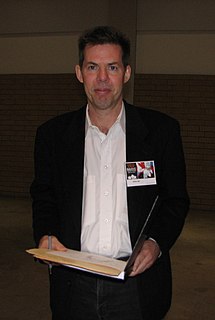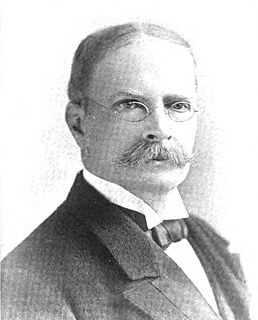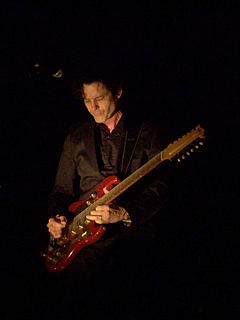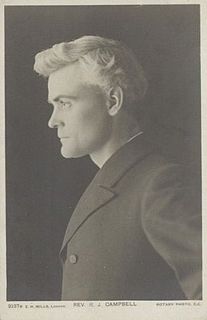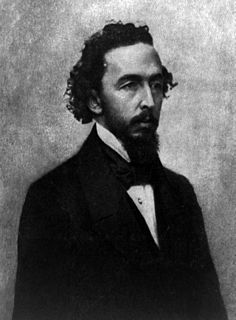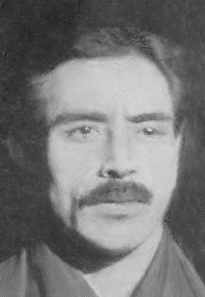Top 534 Strain Quotes & Sayings - Page 9
Explore popular Strain quotes.
Last updated on April 19, 2025.
One reads the truer deeper facts of Reconstruction with a great despair. It is at once so simple and human, and yet so futile. There is no villain, no idiot, no saint. There are just men; men who crave ease and power, men who know want and hunger, men who have crawled. They all dream and strive with ecstasy of fear and strain of effort, balked of hope and hate. Yet the rich world is wide enough for all, wants all, needs all. So slight a gesture, a word, might set the strife in order, not with full content, but with growing dawn of fulfillment. Instead roars the crash of hell.
The problem is maddening. The thing you seek is so close, you feel you could reach out and touch it. You feel it is your immutable destiny to do so. You have not come this far and at such a cost merely to turn around and go back. There is a solution. Of this you are certain. Now, no longer a game of mass, a game of destiny, it has become, instead a contest of wills. You focus on That Which You Seek as if your gaze alone might bring it closer or narrow the distance between you. Just as it feels as if your mind itself will explode from the strain.
I did not write it [Coming of Age in Samoa] as a popular book, but only with the hope that it would be intelligible to those who might make the best use of its theme, that adolescence need not be the time of stress and strain which Western society made it; that growing up could be freer and easier and less complicated; and also that there were prices to pay for the very lack of complication I found in Samoa - less intensity, less individuality, less involvement with life.
I sailed on the North River last night with my flute, and my music was a tinkling stream which meandered with the river, and fell from note to note as a brook from rock to rock. I did not hear the strains after they had issued from the flute, but before they were breathed into it, for the original strain precedes the sound by as much as the echo follows after, and the rest is the perquisite of the rocks and trees and beasts. Unpremeditated music is the true gauge which measures the current of our thoughts, the very undertow of our life's stream.
The art of manipulating public opinion, which is a necessary art for the democratic politician, and, like other arts, is sometimespractised with greater virtuosity by knaves than by honest men (who are apt to disdain it), has a different technique in different countries. For instance, in England we excel in whitewashing: in America they excel in tarring and feathering. We strain our nerves and stretch our consciences to avoid a scandal: Americans do the same to make one.
As for conforming outwardly, and living your own life inwardly, I do not think much of that. Let not your right hand know what your left hand does in that line of business. It will prove a failure.... It is a greater strain than any soul can long endure. When you get God to pulling one way, and the devil the other, each having his feet well braced,--to say nothing of the conscience sawing transversely,--almost any timber will give way.
She felt so old, so worn out, so far away from the best moments of her life that she even yearned for those that she remembered as the worst… Her heart of compressed ash, which had resisted the most telling blows of daily reality without strain, fell apart with the first waves of nostalgia. The need to feel sad was becoming a vice as the years eroded her. She became human in her solitude.
"What is truth?" said jesting Pilate, and would not stay for an answer. Pilate was in advance of his time. For "truth" itself is an abstract noun, a camel, that is, of a logical construction, which cannot get past the eye even of a grammarian. We approach it cap and categories in hand: we ask ourselves whether Truth is a substance (the Truth, the Body of Knowledge), or a quality (something like the colour red, inhering in truths), or a relation ("correspondence"). But philosophers should take something more nearly their own size to strain at. What needs discussing rather is the use, or certain uses, of the word "true." In vino, possibly, "veritas," but in a sober symposium "verum."
God is at the tip of our scalpels, our screwdrivers, our computer terminals, our dust rags, our vacuum cleaners, our pencils and pens. He is with us in our wheelchairs, or on our hospital beds, when all we can do is sit or lie flat. When we envision Him and His purpose in what we do, then we begin to grow aware of His presence in the middle of it. We are able to engage in our inward conversation with Him as we work, naturally, without strain. He becomes our partner, our collaborator.
... He didn't know how to say good-bye. His throat ached from the strain of holding back his emotions. “I don't want to leave you,” he said humbly, reaching for her cold, stiff hands. Emma lowered her head, her tears falling freely. “I'll never see you again, will I?” He shook his head. “Not in this lifetime,” he said hoarsely. She pulled her hands away and wrapped her arms around his neck. He felt her wet lashes brush his cheek. “Then I'll wait a hundred years,” she whispered. “Or a thousand, if I must. Remember that, Nikki. I'll be waiting for you to come to me.
Other anatomical changes associated with long-duration space flight are definitely negative: the immune system weakens, the heart shrinks because it doesn't have to strain against gravity, eyesight tends to degrade, sometimes markedly (no one's exactly sure why yet). The spine lengthens as the little sacs of fluid between the vertebrae expand, and bone mass decreases as the body sheds calcium. Without gravity, we don't need muscle and bone mass to support our own weight, which is what makes life in space so much fun but also so inherently bad for the human body, long-term.
In short, all good things are wild and free. There is something in a strain of music, whether produced by an instrument or by thehuman voice,--take the sound of a bugle in a summer night, for instance,--which by its wildness, to speak without satire, reminds me of the cries emitted by wild beasts in their native forests. It is so much of their wildness as I can understand. Give me for my friends and neighbors wild men, not tame ones. The wildness of the savage is but a faint symbol of the awful ferity with which good men and lovers meet.
In Prison Wearily, drearily, Half the day long, Flap the great banners High over the stone; Strangely and eerily Sounds the wind's song, Bending the banner-poles. While, all alone, Watching the loophole's spark, Lie I, with life all dark, Feet tethered, hands fettered Fast to the stone, The grim walls, square lettered With prisoned men's groan. Still strain the banner-poles Through the wind's song, Westward the banner rolls Over my wrong.
I was trying to find out what happened in my lifetime, because I was an older man. We lived through two terms of George Bush, and I was wondering, "Is he an exception to the rule, or he is a continuation? What is driving all these wars? What is driving this attitude of aggressiveness and militarism?" I got my answer - and it was a shocking answer. I found is this whole strain of history, this whole school has been denied by the media. It is a bizarre blindness, because we are such an intelligent country. It's bizarre that we can't get our own history straight.
We must not listen to those who advise us 'being men to think human thoughts, and being mortal to think mortal thoughts' but must put on immortality as much as possible and strain every nerve to live according to that best part of us, which, being small in bulk, yet much more in its power and honour surpasses all else.
That strain of anti-monopoly crusading egalitarianism really runs throughout American history from [Tomas] Jefferson to Woodrow Wilson, that finds its apotheosis in [Louis] Brandeis, continues through the New Deal, but then it sort of peters out in the '60s because progressives in particular become more interested in extending equality to minorities, and women, and other excluded groups, and little more suspicious of these old white guys, often from the south, who were crusaders against monopolies.
A man who tells secrets or stories must think of who is hearing or reading, for a story has as many versions as it has readers. Everyone takes what he wants or can from it and thus changes it to his measure. Some pick out parts and reject the rest, some strain the story through their mesh of prejudice, some paint it with their own delight. A story must have some points of contact with the reader to make him feel at home in it. Only then can he accept wonders.
On May 7, a few weeks after the accident at Three-Mile Island, I was in Washington. I was there to refute some of that propaganda that Ralph Nader, Jane Fonda and their kind are spewing to the news media in their attempt to frighten people away from nuclear power. I am 71 years old, and I was working 20 hours a day. The strain was too much. The next day, I suffered a heart attack. You might say that I was the only one whose health was affected by that reactor near Harrisburg. No, that would be wrong. It was not the reactor. It was Jane Fonda. Reactors are not dangerous.
The quality of mercy is not strain'd, It droppeth as the gentle rain from heaven Upon the place beneath: it is twice blest; It blesseth him that gives and him that takes: 'Tis mightiest in the mightiest: it becomes The throned monarch better than his crown; His sceptre shows the force of temporal power, The attribute to awe and majesty, Wherein doth sit the dread and fear of kings; But mercy is above this sceptred sway; It is enthroned in the hearts of kings, It is an attribute to God himself; And earthly power doth then show likest God's When mercy seasons justice.
And he's pressing into her and she into him, bodies shivering, like they are two scared, lost children, starving, starving to be touched, to be held, by someone, anyone, the first one they can find who seems familiar enough, safe enough, strong enough to rescue them. They breathe, heavy. Hard. Their fingers strain at cotton. And then they slow down. Stop. Hold. Rest. Before one of them, or both, begins to sob. Before they break another piece that needs to be fixed.
We are called upon to obey and follow our Lord the Christ, but it is not because of any fear of Him or of the consequences if we did not follow; it is the love of Christ which constraineth us, as we are told in the Epistle for the first Sunday of Lend. It is because of our love and gratitude to Him that we must follow Him, that we must strain every nerve to make ourselves like Him. That is our reason--not fear but love.
We do believe in setting goals. We live by goals. In athletics we always have a goal. When we go to school, we have the goal of graduation and degrees. Our total existence is goal-oriented. We must have goals to make progress, encouraged by keeping records . . . as the swimmer or the jumper or the runner does . . . Progress is easier when it is timed, checked, and measured. . . .Goals are good. Laboring with a distant aim sets the mind in a higher key and puts us at our best. Goals should always be made to a point that will make us reach and strain.
Shakespeare carries us to such a lofty strain of intelligent activity, as to suggest a wealth which beggars his own; and we then feel that the splendid works which he has created, and which in other hours we extol as a sort of self-existent poetry, take no stronger hold of real nature than the shadow of a passing traveller on the rock. The inspiration which uttered itself in Hamlet and Lear could utter things as good from day to day, for ever.
There are few problems in the world that economic prosperitycannot help solve. Yet the engines of that prosperity are under fierceattack. The forces that seek power over others have gained the upperhand against those that seek freedom. By harming wealth creation,they cause even more strain on society. Historically, this is nothingnew. State domination over its subjects has roots that connect statism,totalitarianism, communism, and socialism to more modern-day variantsof liberalism and progressivism. It is a constant fight and we mustwin.
There are hundreds of thousands of microbes surrounding us, but they cannot harm us unless we become weak, until the body is ready and predisposed to receive them. There may be a million microbes of misery floating about us. Never mind! They dare not approach us, they have no power to get a hold on us, until the mind is weakened. This is the great fact: strength is life. Weakness is death. Strength is felicity, life eternal, immortal. Weakness is constant strain and misery: weakness is death
Nothing is so beautiful as spring- When weeds, in wheels, shoot long and lovely and lush; Thrush's eggs look little low heavens, and thrush Through the echoing timber does so rinse and wring The ear, it strikes like lightnings to hear him sing; The glassy peartree leaves and blooms, they brush The descending blue; that blue is all in a rush With richness; the racing lambs too have fair their fling. What is all this juice and all this joy? A strain of the earth's sweet being in the beginning In Eden garden.-Have, get, before it cloy.
Whatcha doin', Freak Girl?" --------------------------- "What does it look like, brainiac?" I shot back, even surprising myself with the force of my jab. "I'll give you three guesses. No, wait. Don't strain yourself. Wouldn't want to hurt your head." I waved a flyer in his face, channeling my inner mean girl. "See these? I'm hanging them...on a...wall!" I spoke the last part slowly, as if addressing a dim-witted child. Which wasn't far off the mark, now that I thought about it. "With tape," I added, waving at the dispenser. "You know-sticky, sticky!
But the finest music in the room is that which streams out to the ear of the spirit in many an exquisite strain from the hanging shelf of books on the opposite wall. Every volume there is an instrument which some melodist of the mind created and set vibrating with music, as a flower shakes out its perfume or a star shakes out its light. Only listen, and they soothe all care, as though the silken-soft leaves of poppies had been made vocal and poured into the ear.
Americans don't like to waste time on stupid things, for example, on the torturous process of coming up with names for their towns. And really, why strain yourself when so many wonderful names already exist in the world?The entrance to the town of Moscow is shown in the photograph. That's right, an absolutely authentic Moscow, just in the state of Ohio, not in the USSR in Moscow province.There's another Moscow in some other state, and yet another Moscow in a third state. On the whole, every state has the absolute right to have its very own Moscow.
Has anyone...any distinct notion of what poets of a stronger age understood by the word inspiration? ... There is an ecstasy such that the immese strain of it is sometimes relaxed by a flood of tears, along with which one's steps either rush or involuntarily lag, alternately. There is the feeling that one is completely out of hand, with the very distinct consciousness of an endless number of fine thrills and quiverings to the very toes... Everything happens quite involuntarily, as if in a tempestuous outburst of freedom, of absoluteness, of power and divinity.
Readers may be divided into four classes: 1) Sponges, who absorb all that they read and return it in nearly the same state, only a little dirtied. 2) Sand-glasses, who retain nothing and are content to get through a book for the sake of getting through the time. 3) Strain-bags, who retain merely the dregs of what they read. 4) Mogul diamonds, equally rare and valuable, who profit by what they read, and enable others to profit by it also
We are bored in the city, there is no longer any Temple of the Sun. Between the legs of the women walking by, the dadaists imagined a monkey wrench and the surrealists a crystal cup. That's lost. We know how to read every promise in faces-the latest stage of morphology. The poetry of the billboards lasted twenty years. We are bored in the city, we really have to strain to still discover mysteries on the sidewalk billboards, the latest state of humor and poetry.
There were two now where they had been three. David's death had dismantled the triangle, and an enclosed space was now open. Two points are unreliable; with nothing to anchor them, there is nothing to stop them drifting in opposite directions. If it is string that binds, it will eventually snap and the points will separate; if elastic, they will continue to part, further and further, until the strain reaches its limit and they are pulled back with such speed that they cannot help but collide with devastating force.
To love someone properly probably means that you won’t be very popular. Pure love, loving the way it was intended, is unfortunately a foreign concept to many. Love is messy. Love will involve hardship, demand patience, require forgiveness, test maturity, strain friendship, challenge priorities, refine character, ignite the heart and unleash the soul. Love is not something you sing about, it’s the reason you sing. Love is not something you write about, it’s the reason you write. Love is not something you live to find, it’s the reason that you are alive.
Has your work become very easy? Do you find you can do it with little effort? Has it ceased to impose any strain or fatigue upon you? Do you no longer feel loss of vitality after a long spell of it? Can you now do it as easy as water rolls off a duck's back? If so, look out! Do some stock-taking. Examine your output.... Work done with little effort is likely to yield little result. Every job can be done excellently or indifferently. Excellence necessitates effort-hard, sustained, concentrated effort.
If you deconstruct the movies that have done well, Pixar-type movies that do incredibly well and make hundreds of millions of dollars, they have a strain of decency and conservatism that maybe even their filmmakers don't even recognize. Yet, we cross our fingers that by mistake, liberal filmmakers and liberal producers are going to by mistake make conservative movies. We have to become invested in it, or else we have no excuse to complain.
To be nonviolent to human beings and to be a killer or enemy of the poor animals is Satan's philosophy. In this age there is always enmity against poor animals, and therefore the poor creatures are always anxious. The reaction of the poor animals is being forced on human society, and therefore there is always strain of cold or hot war between men, individually, collectively or nationally.
at least nine-tenths of all the original reality ever created lies outside the multiverse, and since the multiverse by definition includes absolutely everything that is anything, this puts a bit of a strain on things. Outside the boundaries of the universe lie the raw realities, the could-have-beens, the might-bes, the never-weres, the wild ideas, all being created and uncreated chaotically like elements in fermenting supernovas. Just occasionally where the walls of the worlds have worn a bit thin, they can leak in.
The ordinary Nigerians have lived as neighbors down the millennia. I was talking about the British who came and merged a whole number of mini states and big states into one unit. But those people were always there, and they always managed to live side by side with their neighbours. So they were not owned or run by one kingdom. It was not practically impossible for these people when they have different languages and religions to be neighbors. So it is that habit of neighbourliness which is destroyed and put under great strain again and again when you have things like massacres.
I closed my eyes. The only things I knew about why Empty Ones worked the way we did was that we had room for extra souls because we started out with less, and that we could make gates because of our innately human sense of home. But my home was here. How on earth was I supposed to find another one?The gate needs to be opened and closed before dawn, Cresseda said, a hint of strain flowing through her voice.YES. THANKS FOR THAT. VERY HELPFUL RIGHT NOW.
There may not be a hell, but those who judge may create one. I think people are over-taught. They are over-taught everything. You have to find out by what happens to you, how you will react. I'll have to use a strange term here... "good." I don't know where it comes from, but I feel that there's an ultimate strain of goodness born in each of us. I don't believe in God, but I believe in this "goodness" like a tube running through our bodies. It can be nurtured. It's always magic, when on a freeway packed with traffic, a stranger makes room for you to change lanes... it gives you hope.
How is faith to endure, O God, when you allow all this scraping and tearing on us? You have allowed rivers of blood to flow, mountains of suffering to pile up, sobs to become humanity's song--all without lifting a finger that we could see. You have allowed bonds of love beyond number to be painfully snapped. If you have not abandoned us, explain yourself.We strain to hear. But instead of hearing an answer we catch sight of God himself scraped and torn. Through our tears we see the tears of God.
English literature, from the days of the minstrels to the Lake Poets,--Chaucer and Spenser and Milton, and even Shakespeare, included,--breathes no quite fresh and, in this sense, wild strain. It is an essentially tame and civilized literature, reflecting Greece and Rome. Her wildness is a greenwood, her wild man a Robin Hood. There is plenty of genial love of Nature, but not so much of Nature herself. Her chronicles inform us when her wild animals, but not the wild man in her, became extinct.
You collapse a few times, and you put your head in your hands, and you say, "Oh my god, how am I gonna get through this?" You have a few of those nights, and then you get over it and you keep it moving. And those nights... As you get more used to the strain, I guess those nights are fewer and farther between. So that's the best you can hope for. It's a tough job and it's a lot to pull out of your brain.
On this question of principle, while actual suffering was yet afar off, they [the Colonies] raised their flag against a power to which, for purposes of foreign conquest and subjugation, Rome in the height of her glory is not to be compared,-a power which has dotted over the surface of the whole globe with her possessions and military posts, whose morning drum-beat, following the sun, and keeping company with the hours, circles the earth with one continuous and unbroken strain of the martial airs of England.
It is no strain of metaphor to say that the love of God and the wrath of God are the same thing, described from opposite points of view. How we shall experience it depends upon the way we shall come up against it: God does not change; it is man's moral state that changes. The wrath of God is a figure of speech to denote God's unchanging opposition to sin; it is His righteous love operating to destroy evil. It is not evil that will have the last word, but good; not sorrow, but joy; not hate, but love.
What other words, we may almost ask, are memorable and worthy to be repeated than those which love has inspired? It is wonderful that they were ever uttered. They are few and rare indeed, but, like a strain of music, they are incessantly repeated and modulated by the memory. All other words crumble off with the stucco which overlies the heart. We should not dare to repeat these now aloud. We are not competent to hear them at all times.
In some of the classes, especially the introductory religion courses I took, the professors can veer into a particular strain of religious anti-intellectualism. Professors typically aren't given tenure at Liberty, so there's pressure to hew to the party line on religious and social issues. I didn't see a whole lot of my professors encouraging critical thinking among their students. Which isn't to say that students don't engage critical thinking skills at Liberty - just that it wasn't part of my classroom experience there.
There is a historic strain of dominion theology which says, taking its references from the Psalms, that man is made just a little lower than God, and that we are the crown of creation. That interpretation has come at the expense of the one that says when God, in the story of Noah, intervened to save human life against the flood, against the acts of nature, He did not stop with human beings. He made sure that every kind of animal was represented twice on that ark.
The road to glory is difficult with its rocks and boulders, its strain and struggle. Things aren't always as easy as we would like. Surprises and pitfalls wait for us along the road of life. We're going to sweat and sway, we're going to wonder why things are the way they are. But every road has an end; every mountain has its peak. If we can just hold on and keep climbing, knowing that God is aware of how we're straining, he will bring us up and over the mountains.
The source of each accordant strain
Lies deeper than the Poet's brain.
First from the people's heart must spring
The passions which he learns to sing;
They are the wind, the harp is he,
To voice their fitful melody,--
The language of their varying fate,
Their pride, grief, love, ambition, hate,--
The talisman which holds inwrought
The touchstone of the listener's thought;
That penetrates each vain disguise,
And brings his secret to his eyes.
The weed crushed and pressed by the heavy rock may slowly and gently grow up anew helped by the fresh air, sunshine, and sympathetic rain. On the other hand, the rock is often broken through exposure to nature and weathering. Life is a strong power to grow in tenderness; this fact may be considered as having a close relation with human life. At the same time tenderness has sometimes stronger power against stiffness or hardening due to extreme strain.
My Heart I'm not going to cry all the time nor shall I laugh all the time, I don't prefer one "strain" to another. I'd have the immediacy of a bad movie, not just a sleeper, but also the big, overproduced first-run kind. I want to be at least as alive as the vulgar. And if some aficionado of my mess says "That's not like Frank!," all to the good! I don't wear brown and grey suits all the time, do I? No. I wear workshirts to the opera, often. I want my feet to be bare, I want my face to be shaven, and my heart--you can't plan on the heart, but the better part of it, my poetry, is open.

